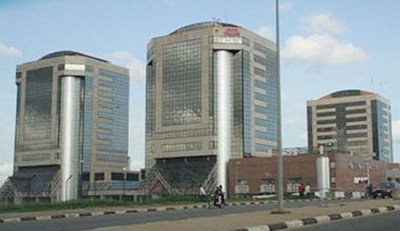Chika Amanze-Nwachuku writes that the current move by the Department of Petroleum Resources to fully digitalise its operations, is the right step geared towards improved service delivery and operational efficiency
Barring any further delay, the long awaited Petroleum Industry Bill (PIB) will be passed into law before the seventh National Assembly winds up.
The PIB is proposed as a transformative piece of legislation that aims to consolidate 16 different Nigerian petroleum laws into a single document, establish a new legal and regulatory framework as well as new institutions and regulatory authorities
An indication that the bill would be passed within the life of the seventh assembly emerged last week, when the Senate President David Mark made a solemn promise that the long delayed bill was being given an accelerated consideration in order to ensure its passage before the expiration of the 7th Senate.
Expectedly, the signing of the bill will increase activities in the oil and gas industry and by extension, the DPR, which is saddled with the onerous task of regulating and monitoring activities in the industry. This is because new projects will come on stream and more investors would be approaching the agency, either for issuance of new oil and gas industry service permits or renewal of existing ones.
Launch of Electronic Portal
Prior to the launch of the OGISP, oil and gas industry services permits and licences by the regulatory agency were carried out manually, resulting in undue delays in processing of documents, loss of documents and gave room to unnecessary bottlenecks, which adversely impacted its activities.
To be able to carry out its duties expeditiously and efficiently, the DPR has put some measures in place to expedite its activities and has also introduced electronic processing and issuance of oil and gas industry service permits to applicants. This culminated in the recent launch of the Oil and Gas Industry Service Permits (OGISP), which signaled its migration to electronic portal.
With the launch of the OGISP, issuance of e-portal, processing and issuance of oil and gas industry service permits to applicants will henceforth be done electronically. This also implies that all applicants seeking renewals of their licences or applying for new ones would be required to apply online with all applicable requirements and such permits would be processed and issued within seventy hours by the DPR.
The launch of the e-portal, according to the DPR, marked the beginning of full digitalisation of its entire licencing and permitting system, and was geared towards improved service delivery and operational efficiency.
Spokeswoman for the DPR, Ms. Dorothy Bassey explained that the oil and gas industry service permit is a regulatory requirement for Nigerian registered companies seeking to provide services in the oil and gas industry.
It has three main categories, namely: service- General, Major and Specialised and attract statutory fees of N500, N2,500 and N7,500, respectively.
According to Bassey, the new online application system will require applicants to visit the DPR website-www.dprnigeria.org.ng or navigate to the OGISP portal-ogisp.dpr.gov.ng for registration by creating a company specific account on the portal for submission, processing and issuance of permits.
However, existing permit holders, whose permits had not expired at the time the new process began, would be required to re-certify their permits through the online portal at no extra cost.
“The Department wishes to assure existing and new applicants that the statutory fees currently charged for the different categories remains unchanged. However, moderate administrative fees for the different categories have been introduced for infrastructural support and servicing of the electronic platform to enable us serve the public better”, the agency said at the launch of the electronic portal.
It added: “All payments for permits shall be through any bank nationwide using all electronic payment options available in the banking industry like Mastercard, Visa, Verve, Quickteller etc.
The DPR spokeswoman also explained that all necessary security features had been incorporated into the system to safeguard details of all applicants. She warned that forged or fake documents submitted as support documents will render the application void and fees forfeited.
Furthermore, she said, some services under the major and specialized categories may require further evaluation, while all applications for offshore operations must show evidence of possession of Offshore Safety Permit (OSP).
DPR’s Functions
The DPR oversees activities of companies licensed to engage in petroleum business in the country, with the objective of ensuring that national goals and aspirations were not thwarted, and that oil companies carry out their operations in line with industry standards and according to international oil industry standards and practices.
The agency keeps records and other data of the oil industry’s operations and informs Government about all activities and occurrences in the petroleum industry. It is also the duty of the DPR to conserve the nation’s hydrocarbon resources and maximise returns on investment to government. It also advises government on the nation’s authentic oil and gas reserves, production and export for planning and developments purposes, as well as ensure that oil and gas operations in Nigeria have linkages with host communities and meet local content aspirations of government. Aside from managing and administering Nigeria’s oil and gas acreages and concessions, it is also the duty of the DPR to ensure that oil and gas activities were carried out in a safe and environmentally sustainable manner by following development in global Health, Safety and Environment (HSE) standards and then adapt same to our national circumstances.
Other Measures in Place
To ensure effective and efficient discharge of these enormous duties, the DPR had put various measures in place. These include; the introduction of National Production Monitoring System (NPMS), which provides the platform for transmission of production and export data by oil companies to the DPR and the establishment of National Data Repository , (NDR), which provides a digital platform for the agency’s regulatory activities.


